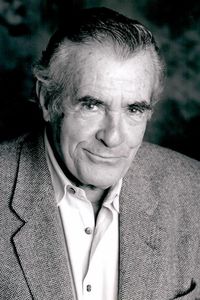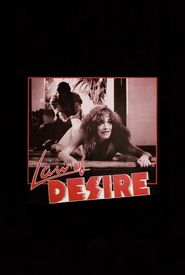German Sánchez Hernández-Cobos, a Spanish thespian of great renown, left an indelible mark on the European cinematic landscape. Born on July 7, 1927, he was the son of a stage actor, Fernando Cobos, and spent a significant portion of his formative years in the culturally rich city of San Sebastian.
German's early life was characterized by an intense fascination with the art of acting, which ultimately led him to join the prestigious Teatro Español Universitario (TEU) in 1949, marking the beginning of his illustrious career in the world of the performing arts.
Following his relocation to Madrid, he pursued a formal education in the field of dramatic arts by enrolling in the esteemed School of Dramatic Art and the Official School of Cinematography, where he would eventually hone his craft and lay the foundation for a successful career in the entertainment industry.
It was in 1951 that he made his screen debut, appearing in Juan de Orduña's cinematic masterpiece, La leona de Castilla, marking the beginning of his journey as a professional actor.
Subsequently, he joined the comedy troupe of the renowned Hungarian actress, Lilí Murati, where he quickly gained widespread recognition for his versatility and talent, effortlessly transitioning between comedic roles in productions such as Tovarich and Una noche en su casa, señora, and dramatic pieces like La muerte de Dantón, showcasing his impressive range and depth as a performer.
From the 1950s to the 1960s, German's cinematic presence was undeniable, as he took on a multitude of tough and captivating leading man roles in an astonishing number of over a hundred films. This impressive filmography showcases his remarkable range and versatility as an actor, featuring notable works such as the critically acclaimed "El beso de Judas", "La patrulla", "La otra vida del Capitán Contreras", and "Cuerda de presos", all expertly directed by renowned filmmakers Rafael Gil and Pedro Lazaga.
German's illustrious career traversed the Italian film scene, where he made memorable appearances in productions such as Esclavas de Cartago, a cinematic masterpiece that showcased his remarkable acting prowess, and Susana pura nata, a film that further solidified his reputation as a talented thespian.
Upon his return to Spain, German's impressive acting skills were once again on full display as he shared the screen with the talented Sara Montiel in Carmen la de Ronda, a captivating film directed by the visionary Tulio Demichelli.
German's impressive range as an actor was further demonstrated in his subsequent appearance in the melodrama Ama Rosa, where he starred alongside the esteemed Imperio Argentina, a pairing that resulted in a truly unforgettable cinematic experience.
German's acting career took a significant turn in the 1960s, marked by his appearance in the comedy film "Guapo, libre y español", which showcased his unique talent for bringing humor to the big screen.
As the decades progressed, German's dedication to his craft led him to explore new avenues, and from the 1980s onwards, he began to make a name for himself in the world of stage productions.
Some of his most notable roles during this period include "Del rey Ordás y sus infamias", a thought-provoking drama that allowed him to tap into his dramatic range, as well as "La amante de su señoría", a romantic comedy that showcased his ability to bring levity to even the most serious of situations.
Additionally, German's performance in "La marquesa Rosalinda" further cemented his status as a versatile and talented actor, capable of taking on a wide range of roles with ease and aplomb.
German's extensive filmography boasts a plethora of notable collaborations with esteemed directors, including the acclaimed J. A. Bardem, Alfonso Balcázar, and the renowned Pedro Almodóvar.
As his acting career took a temporary hiatus, German spent several seasons in retirement, devoting his time to a hospitality business venture in the picturesque town of La Granja de San Ildefonso, nestled in the Segovia region.
Years later, in 1995, German made a triumphant return to the small screen, starring in the popular television series Villarriba y Villabajo.
German Sánchez Hernández-Cobos, a renowned Spanish actor of considerable repute, breathed his last on January 12, 2015, leaving an indelible mark on the world of European cinema, a testament to his remarkable talent and dedication to his craft, which has continued to inspire and influence generations of actors and filmmakers alike.





















